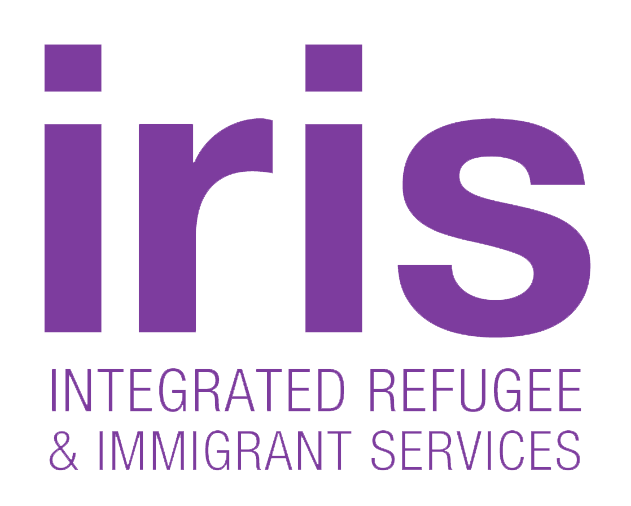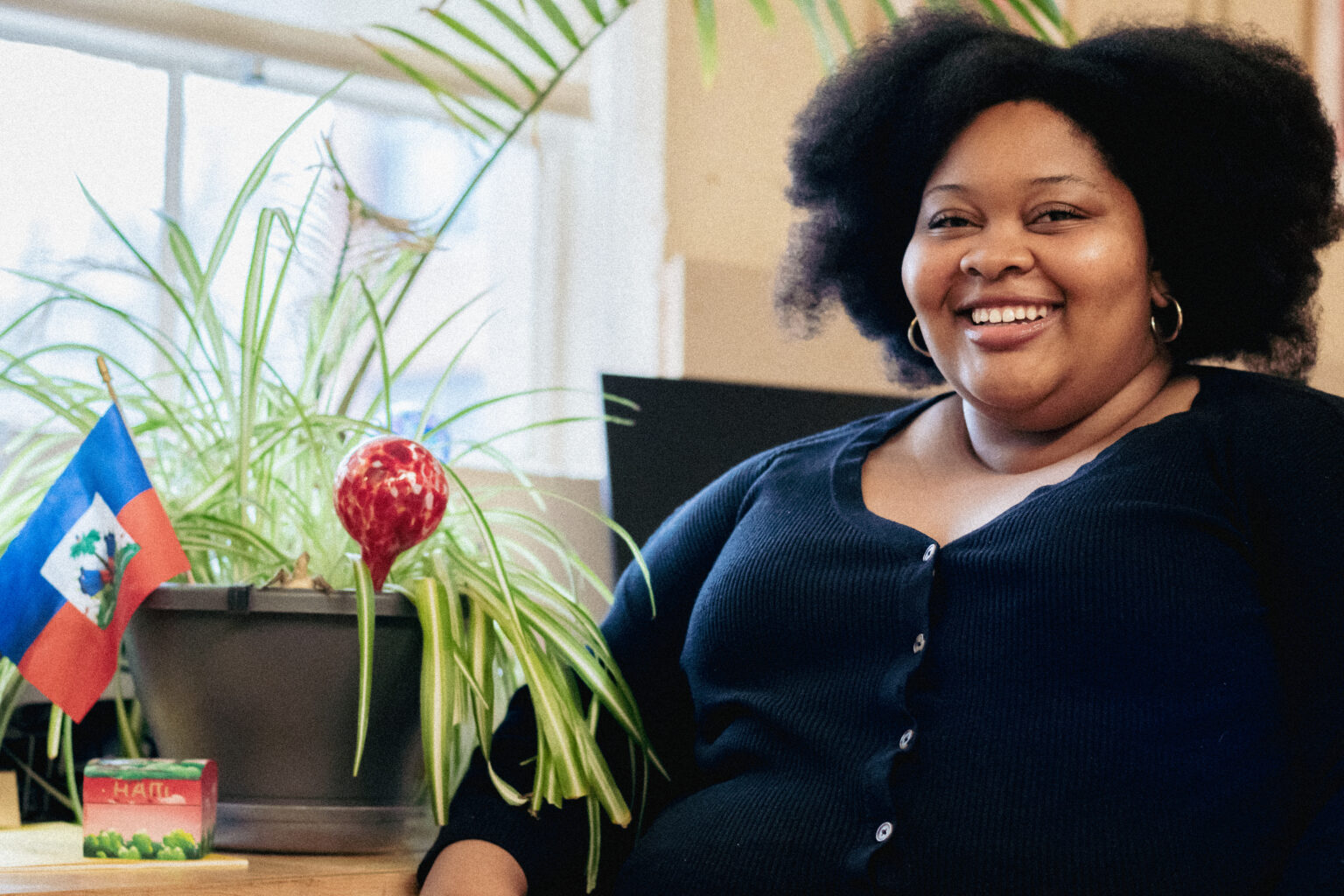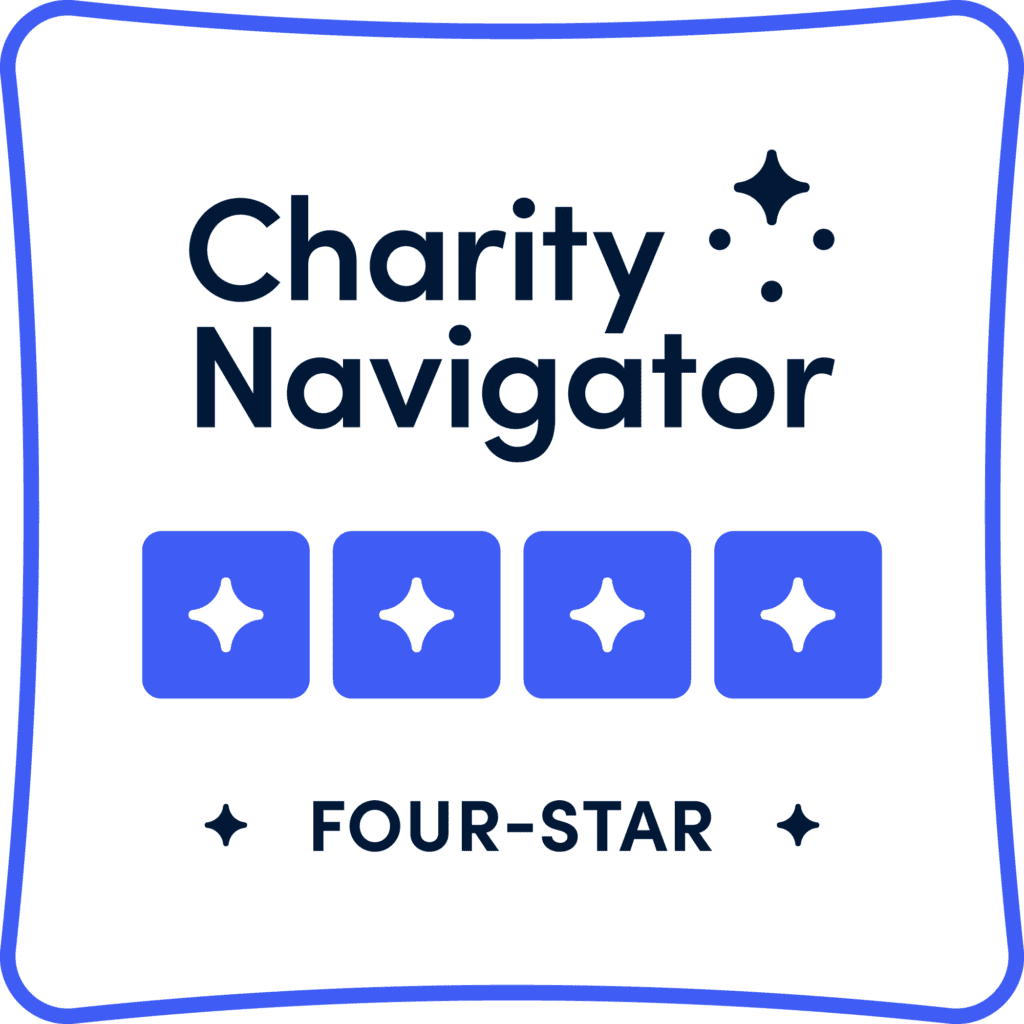© Rachel Peet
As a first generation Haitian American, Imani Jean-Gilles embodies advocacy, decolonization, and an appreciation for the diverse journeys of IRIS clients. She joined IRIS in 2021 as Manager of Youth Services & Education Advocacy, and eventually, IRIS’ Education Program Coordinator. She’s managed various education programs for immigrant youth, including in-school tutoring and the Summer Learning Program, one of IRIS’ largest programs that averages over 100 students per day.
While she represents Ayiti (Haiti) with pride for her ancestors, not just during this Haitian Heritage Month, she also encourages the expression of many other long repressed voices from our global community, particularly those who have been forced to flee their homelands.
“Not only the people of Ayiti (Haiti) are being actively displaced, but people all around the world are becoming disempowered and marginalized in their own homes. If we don’t advocate for our existence, we may never have our unique nations, languages, cultures and populations ever again,” Imani emphasizes.
For over five centuries, the island nation of Ayiti (Haiti) has stood as an enduring symbol of resilience, being the first Black republic to liberate itself from colonial rule. The most familiar feelings that have transcended beyond physical and cultural borders, as well as these 500 years, are that of such resilience and determination.
Imani’s upbringing was shaped by her parents’ unwavering commitment to instill in her and her siblings the importance of carrying themselves with dignity, echoing the strength of her ancestors. Imani reflects, “…having my parents’ guidance growing up was essential as they always spoke highly of Ayiti no matter what was going on there or what the media was saying. They always spoke love and power into Ayiti.”
While Imani has yet to be directly involved in supporting Haitian youth through the educational programs offered by IRIS, her deep sense of Haitian pride and passion has found expression in our Youth Leadership Program. Last March, she designed a special workshop that delved into the rich history and culture of Ayiti. Home-cooked, Haitian dishes and newfound perspectives were shared as Imani’s family tree and culture unfolded before her at work.
Beyond the education department at IRIS, Imani supports Haitian clients whenever possible. Whether bridging communication gaps at our weekly food pantry by interpreting between English to Haitian Kreyol or sharing an important message around registering for English classes in Kreyol, Imani is ready to lend a hand.
“I’m not working day-to-day with the Haitian population, but there are small ways in which I’ve helped. I will go out of my way to do it even if it’s not in my job description,” says Imani.
Recently, Imani’s advocacy was showcased in a webinar spotlighting “Taíno Voices,” referring to the historic indigenous population of the Caribbean. Despite the near extinction of the Taíno language, an Arawakan language once dominant in the Antilles, Imani remains dedicated to ensuring that her own voice, lineage, and people endure into the future, particularly as Haitian migration is on the rise.
Imani’s advocacy work has taught her the importance of listening to diverse voices. As her Haitian brothers and sisters have long strived for, Imani too strives to connect and foster deeper understanding amongst all migrants through her ongoing exploration of new languages. Through her passion for linguistic diversity, Imani is knowledgeable in five different languages, including Taíno, French, Arabic, and Haitian Kreyol. Her dedication both mirrors that of an exemplary educator and the openness of many other multilingual Haitians.
Imani believes that dismantling societal barriers hinges on listening to and understanding not just one, but both perspectives, often conveyed through the languages that shape them. Her consistent efforts towards heightened understanding as an educator has opened many doors for the individuals she educates at IRIS, and beyond.
She, alongside her Haitian brothers and sisters embrace the proverb “Dèyè mòn, gen mòn,” meaning, beyond every mountain, lies another mountain. Despite never seeing the full view from every “mountain top” after each challenge, they continue pushing forward, accepting that each new summit holds more unknown strengths and broader perspectives. Imani strives to share the hope of this message with all migrant journeys as an educator, social justice advocate, and Haitian American.



